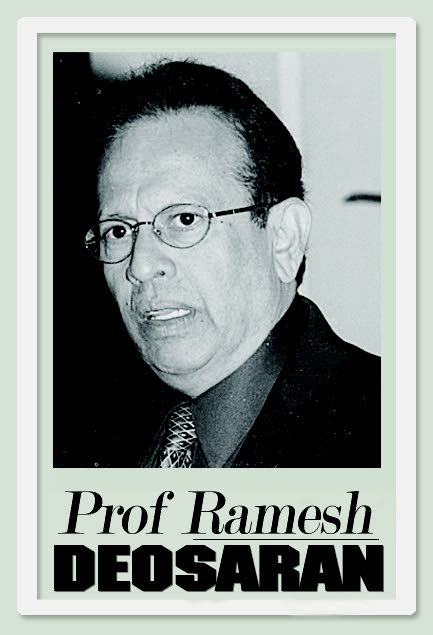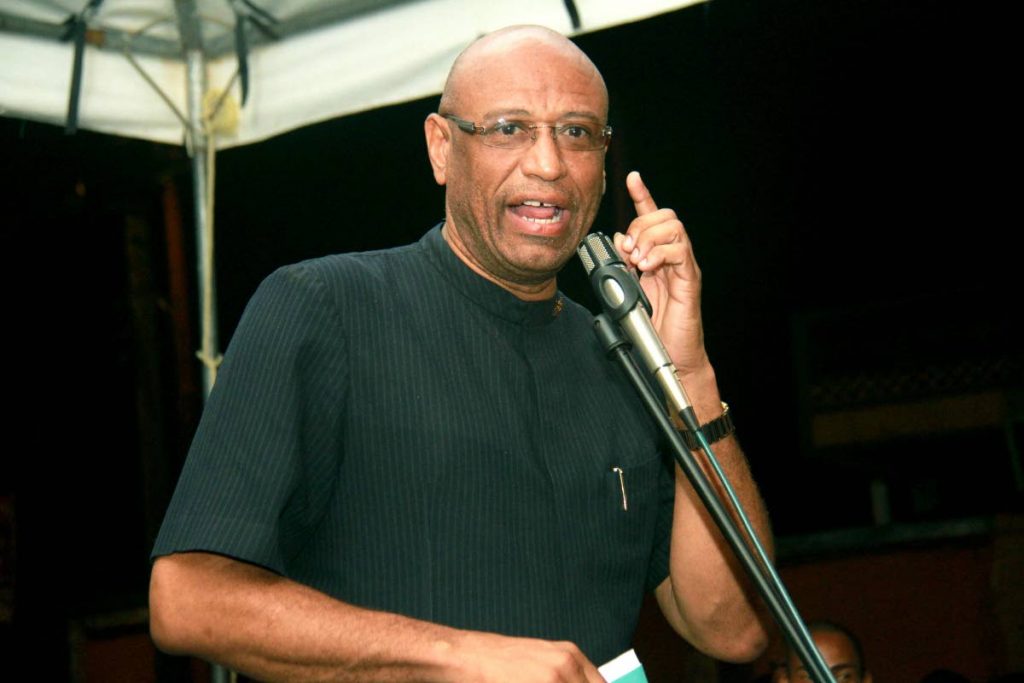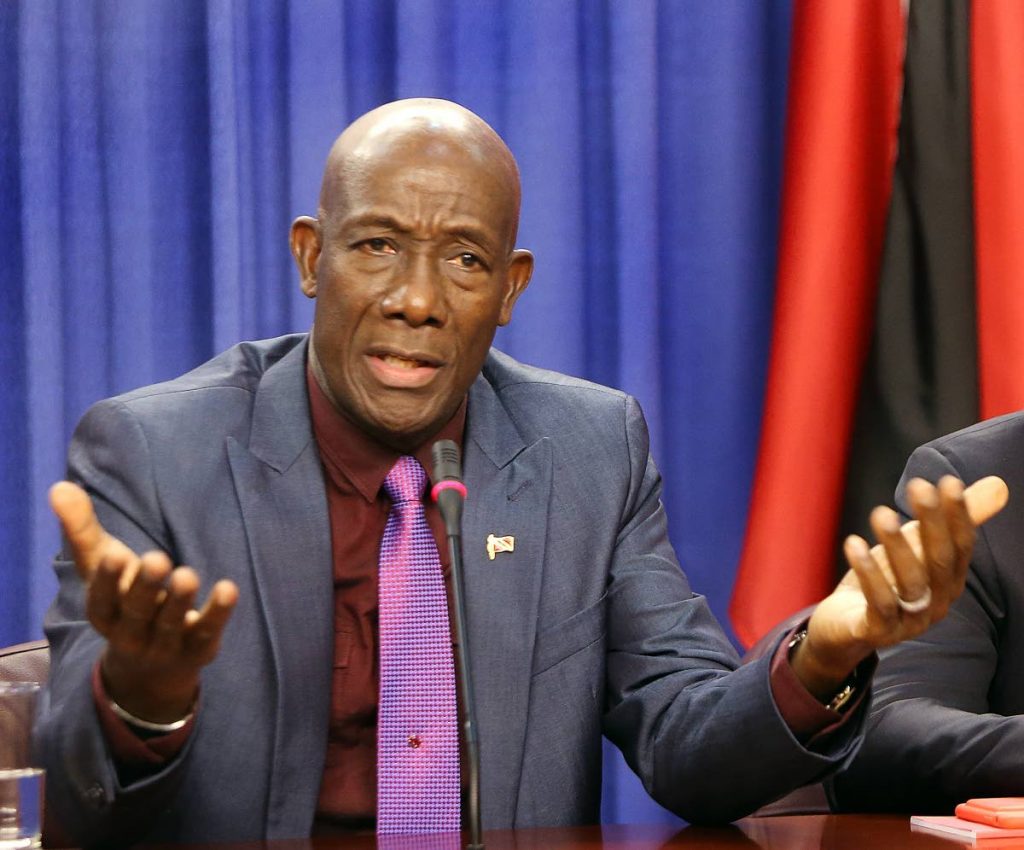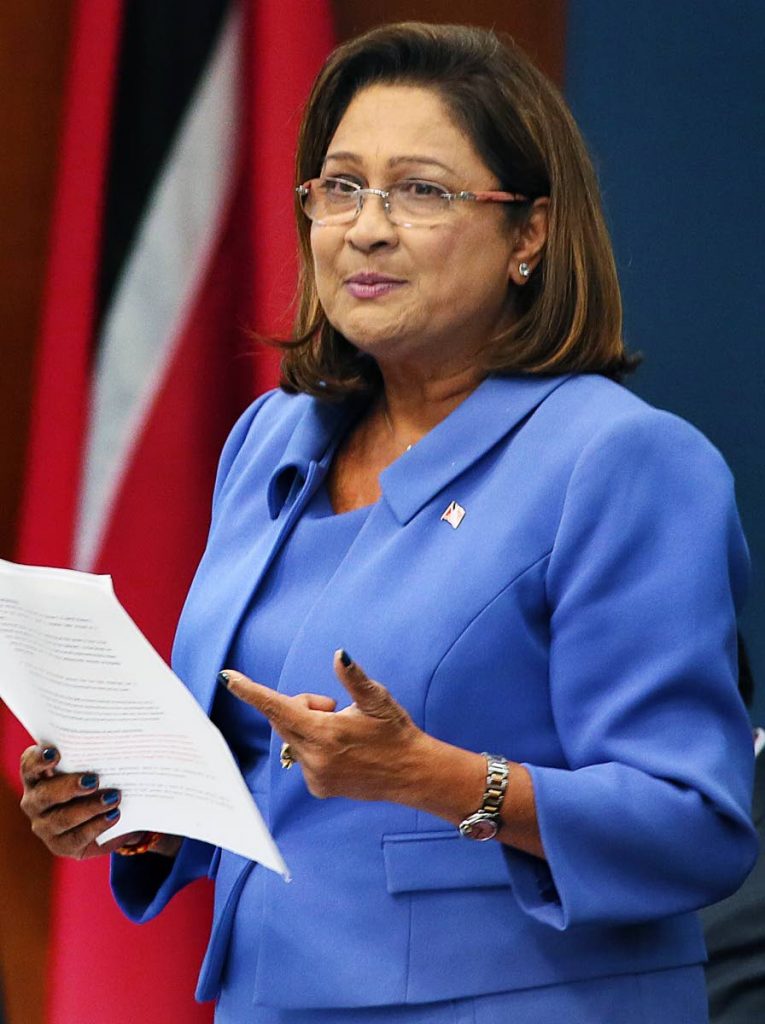Kamla’s grand alliance

Alliance. This is described as “a union or agreement to co-operate; a political party formed by the allying of separate parties.” So what do you say when there is a “common foe” (ruling People’s National Movement government, 23 seats) opposed by a growing number of disgruntled interest groups constellating around a politically-charged national issue (Petrotrin “closure”)? And in the centre is the open-door Opposition United National Congress (UNC,18 seats)?
So with 2020 elections fast coming into divisive focus, would an “agreement” evolve to form an alliance of these “separate parties,” led by Ancel Roget’s muscular Oilfield Workers Trade Union (OWTU) in one stream, and strategically partnered with the UNC led by Kamla Persad-Bissessar? A grand political alliance against the PNM?

OWTU has already declared its mission now includes stern political action against the PNM government. As far back as early August when the closing of the Petrotrin refinery began boiling over, Roget told the country: “Fasten your seatbelts, the country is in for a rough ride. The issue is more than Petrotrin, it’s also about Government failures in crime, education, health, labour and the economy,” (Express, August 31).
More recently, at an angry gathering of trade unions in Kamla’s Siparia constituency, Roget’s political direction gained ground when he explained his expanding street-walking campaign – in Cedros, Marabella, Point Fortin, Siparia, etc. The unions criticised both the PNM and UNC, with Movement for Social Justice (MSJ) leader, David Abdullah, calling for a political uprising by the labour movement evolving into “a second republic.” Unions, from Butler, Weekes to Panday have not been able to form a government on their own.
And with the sympathising political madam now drawn into the OWTU’s “save Petrotrin” crusade, we will likely be reminded that “the enemy of my enemy” is my friend, and “the friend of my enemy” is my enemy. Democratic politics, sometimes unfortunately, is more about vote-getting alliances than friends. Of course, the PNM will not be standing still, especially with Petrotrin (once called “Petrosingh”). PM Dr Keith Rowley, Finance Minister Minister Colm Imbert and Energy Minister Franklin Khan have all justified their case on the “burdensome subsidies, inefficiencies, growing debts and heavy strain on the nation’s taxpayers.”

The PNM top brass persisted that the statistics (eg $11 billion debt, $2 billion per year loss, $25 billion required to keep Petrotrin running, decreasing income, out-of-hand wages, etc) show that the closure (decommissioning) was necessary to prevent further damage. The Newsday editorial concluded: “The situation described by Dr Rowley is one that demands an engagement with facts and not rhetoric,” (September 4).
Not so, it is also about people and a strategic plan for investment, savings and improved management reply the OWTU and its political supporters – including UNC Persad-Bissesar, Congress of the People leader Carolyn Seepersad, TTUTA, SWWTU, other unions and NGOs. Activists Wayne Kublalsingh, Devant Maharaj, and some church leaders are also behind OWTU. To help battle this growing challenge, the incumbent PNM must rest its case on tough financial discipline for all other state companies too. It has to operationalise its 2018/19 budget with convincing efficiency and integrity. In other words, appreciating the current political mood, it has to demonstrate credible, integrity-rich decision-making towards 2020.

Facing some insider challenges herself, Persad-Bissessar may well divest and house-clean too. Drop disloyalists to accommodate competent members from the grand alliance. Opportunity knocks, allowing for paradigm shift. It may well become the “United People’s Alliance.” The country needs better party politics. High time, too, for a genuine issue-based two-party system. This serious Petrotrin issue and the 2020 elections concern all citizens. As a social scientist, I feel compelled to look towards future possibilities especially to avoid potential lawlessness and disorder with the “rough ride.” With the “working-class forces” moving towards a grand political alliance around the UNC, the PNM maintaining its urban, middle class support, and with echoes of the one per cent divide, it may well become a class-driven election in 2020.
Driven by the Petrotrin issue, and based on 2015 results, UNC David Lee’s Pointe-a-Pierre now seems safer (9,710 vs PNM Neil Mohammed 8,204). The insertion of many infrastructure projects now in Moruga suggests PNM worry (PNM Lovell Francis 10,808 vs UNC Clifton De Couteau 10,275). St Joseph may well fall if Kamla’s grand political coalition hits the streets in 2020 – the “mother of all elections.”

Comments
"Kamla’s grand alliance"